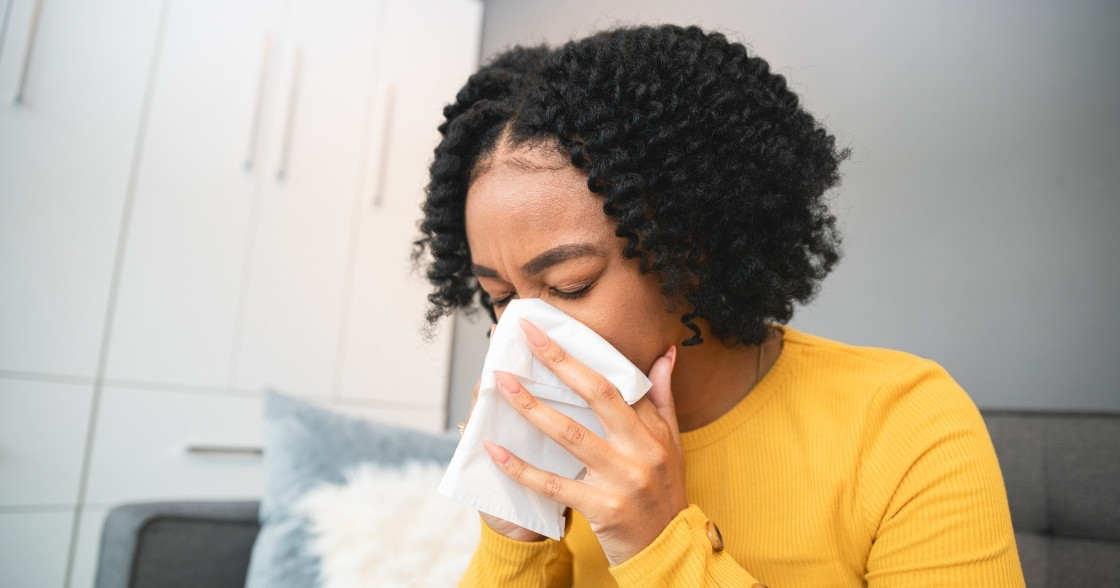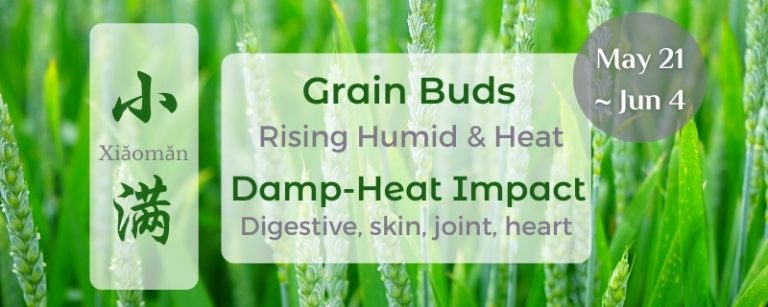Self Care Guide for Allergic Rhinitis
According to the World Allergy Organization, allergic rhinitis is the fifth most common chronic disease, affecting over 400 million people worldwide. Commonly referred to as “hay fever”, allergic rhinitis is rarely dangerous, but it will still hinder your everyday activities.
Symptoms
Allergic rhinitis is an allergic reaction that causes inflammation of the inside of the nose. This leads to nasal congestion, a runny nose, sneezing, and sinus pain. The excess mucus buildup might drip down your throat, causing you to have increased coughing, wheezing, and difficulty breathing, which can lead to a sore throat. Having itchy and watery eyes, an itchy nose, or an itchy throat are also symptoms of an allergic reaction. The discomfort from experiencing these symptoms will interfere with your sleep, causing you to feel tired and experience headaches, which will negatively impact your productivity.
If left untreated, you might experience increased sinus or ear infections due to complications caused by the inflammation. Allergic rhinitis can also worsen asthma symptoms.
Medical treatments for allergies
If you have experienced some allergies, you will probably have taken some of the following allergy medications. But can they cure the allergy for good?
Allergy medications in western medical treatment are designed to alleviate symptoms by reducing the body’s reaction to allergens. However, they do not cure allergies for good. Allergy medications provide temporary relief and need to be taken regularly to maintain symptom control.
There are several types of allergy medications, including antihistamines, decongestants, corticosteroids, and leukotriene inhibitors. Each type has its own set of potential side effects.
Antihistamines: These medications work by blocking the action of histamine, a chemical released by the body in response to allergens. Common side effects of antihistamines include drowsiness, dry mouth, dizziness, and headache.
Decongestants: These medications work by narrowing blood vessels in the nasal passages, which can help reduce swelling and congestion. Common side effects of decongestants include jitteriness, anxiety, insomnia, and increased blood pressure.
Corticosteroids: These medications work by reducing inflammation in the body. They are available in various forms, including nasal sprays, inhalers, and pills. Common side effects of corticosteroids include weight gain, mood changes, increased appetite, and increased risk of infections.
Leukotriene inhibitors: These medications work by blocking the action of leukotrienes, which are chemicals released by the body in response to allergens. Common side effects of leukotriene inhibitors include headache, stomach upset, and increased risk of infections.
It’s important to note that some people may experience allergic reactions to certain allergy medications. Ask yourself this question. Will you sacrifice your health for taking those allergy medications which merely control the symptoms temporarily?
Natural treatments for allergic rhinitis
There are several natural treatments for allergic rhinitis that may help alleviate symptoms. Let’s look at their pros and cons:
Saline nasal irrigation: This involves using a saline solution to rinse the nasal passages, which can help reduce inflammation and congestion. Pro: This is a safe and effective treatment that can help alleviate symptoms without using medications. Con: It may take some time to get used to the feeling of the saline solution in the nose, and it may not provide immediate relief.
Probiotics: Probiotics are beneficial bacteria that can help support the immune system and reduce inflammation. Pro: Probiotics have been shown to be safe and may help reduce allergy symptoms. Con: The research on probiotics for allergies is limited, and more studies are needed to determine their effectiveness.
Honey: Some people believe that consuming local honey can help reduce allergy symptoms by exposing the body to small amounts of pollen. Pro: Honey is a natural and safe food that may provide some relief for allergy symptoms. Con: The research on honey for allergies is limited, and it may not be effective for everyone.
Quercetin: Quercetin is a natural compound found in certain foods such as apples, onions, and green tea. It has anti-inflammatory properties that may help reduce allergy symptoms. Pro: Quercetin is a natural and safe supplement that may help reduce allergy symptoms. Con: The research on quercetin for allergies is limited, and it may interact with certain medications.
Home remedies
Here are some things you can do at home to help reduce symptoms and prevent getting allergic rhinitis:
- Take probiotics, which are very helpful in reducing and preventing allergic rhinitis. You can also take Butterbur to help with itchy eyes.
- Acupuncture is a safe and effective method of preventing and reducing allergy symptoms.
- Use air filters to get rid of any allergen particles in your home. Additionally, if you use a dehumidifier, you can reduce the risk of growing mold.
- Try to stay indoors during Spring and Summer if you are allergic to pollen, especially in the morning. Also, keep windows and doors closed during these seasons.
- If you must go outside, you can wear gloves, protective eyewear, and masks to reduce the risk of inhaling pollen and other allergens. Take a shower immediately after to get rid of any allergens.
- Take good care of your pet’s personal hygiene to reduce the amount of pet hair, skin, and litter in your house.
- Remove carpeting or vacuum weekly to reduce the risk of dust mites.
Cause of Allergy
You may wonder: why do some people get allergies easily while others don’t?
The development of allergies is a complex process involving genetic and environmental factors. While genetics may play a role in determining whether someone is more prone to allergies, environmental factors can also trigger the development of allergies.
Research suggests that people with a family history of allergies are more likely to develop allergies themselves. This is because certain genes may make a person more susceptible to allergic reactions. However, having these genes does not necessarily mean someone will develop allergies.
Environmental factors such as exposure to allergens, pollution, and diet can also play a role in developing allergies. For example, people who live in areas with high levels of pollution might be more likely to develop allergies than those who live in cleaner areas. Similarly, having a diet high in processed foods and low in fruits and vegetables may increase the risk of developing allergies.
It’s also worth noting that the hygiene hypothesis suggests that exposure to certain bacteria and viruses in childhood may help strengthen the immune system and reduce the risk of developing allergies. This theory suggests that children who grow up in overly sterile environments may be more prone to allergies.
In summary, the development of allergies is likely due to a combination of genetic and environmental factors. While genetics may increase someone’s susceptibility to allergies, environmental factors such as exposure to allergens and diet can also play a role in triggering allergic reactions.
Treat Rhinitis Allergy’s Root Cause
You have probably tried some of the treatments listed above before, but If your allergies keep coming back, it means whatever you tried doesn’t deal with the root cause. This is because these treatments only target the symptoms and not the root of the issue. Most people’s knowledge about diseases is limited to what they’ve learned from their medical doctors, books, or internet search results. If you want to know the root cause of your allergic reactions, you need to go beyond your limitations and see things from another perspective. Our health and qigong webinar on “how to cure disease from its root cause” will shine a light on this new perspective.







